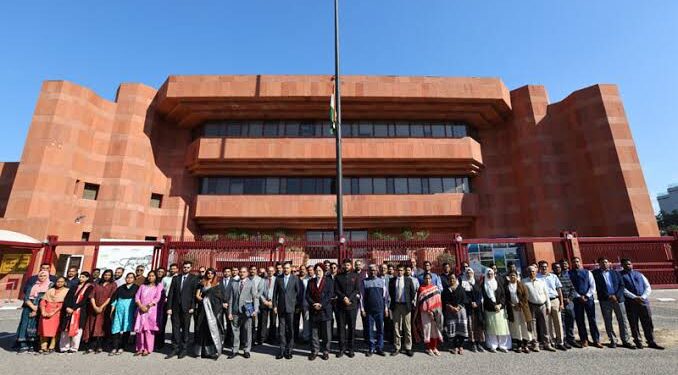New Delhi, July 18, 2025 – Over the past five years, Kuwait has executed the highest number of Indian nationals, with 25 individuals facing capital punishment, according to recent data presented by the Indian Ministry of External Affairs (MEA). This figure places Kuwait at the forefront of countries where Indian citizens have been executed, followed by Saudi Arabia with nine, Zimbabwe with seven, Malaysia with five, and Jamaica with one. The data, disclosed in a Rajya Sabha session on March 20, 2025, sheds light on the precarious situation of Indian nationals facing death sentences abroad.
As of February 13, 2025, a total of 49 Indian nationals are currently on death row across various countries. The United Arab Emirates (UAE) tops the list with 29 Indian prisoners awaiting execution, followed by Saudi Arabia with 12, Kuwait with three, and Qatar with one. The data underscores the challenges faced by Indian migrant workers, particularly in Gulf countries, where many are employed in low-wage, high-risk jobs and often lack adequate legal representation.
The Indian government has emphasized its commitment to the safety and well-being of its nationals abroad. Minister of State for External Affairs Kirti Vardhan Singh stated, “Indian Missions/Posts abroad provide all possible assistance, including consular access and legal support, to Indian nationals sentenced to death.” This assistance includes facilitating appeals and mercy petitions, though outcomes vary depending on the judicial transparency of the host country. In authoritarian systems like Saudi Arabia, Indian embassies are often informed only after executions, limiting their ability to intervene.
A notable case in the UAE involved Shahzadi Khan, a 33-year-old woman from Uttar Pradesh, executed in February 2025 for the alleged murder of an infant under her care. Reports suggest she was trafficked and faced abuse, raising questions about the fairness of her trial. Two other Indian nationals, Muhammed Rinash Arangilottu and Muraleedharan Perumthatta Valappil, were also executed in the UAE in February 2025 for murder convictions. The MEA faced criticism for delayed communication with families, as seen in Shahzadi’s case, where her family was informed two weeks after her execution.
In contrast, diplomatic efforts have yielded successes in some cases. In 2024, Qatar released eight former Indian Navy officers initially sentenced to death for alleged spying. Their sentences were commuted to prison terms following intense negotiations, and they were eventually repatriated to India. Similarly, India’s intervention in Yemen postponed the execution of Nimisha Priya, a nurse sentenced for murdering a Yemeni national, allowing her family time to seek a resolution through negotiations for blood money, a practice common in some Gulf countries.
Experts highlight systemic issues, particularly for blue-collar workers who form the majority of those on death row. “Most of these individuals are from marginalized backgrounds and receive little to no legal support,” said a human rights advocate on X, pointing to cases like Shahzadi Khan’s as emblematic of broader injustices. The lack of transparency in judicial processes in countries like the UAE and Saudi Arabia further complicates India’s ability to secure fair trials for its citizens.
The Indian government continues to provide consular support and explore legal remedies, but the rising number of death row cases has sparked calls for stronger bilateral agreements to protect migrant workers. With over 10,000 Indian nationals imprisoned abroad, including 2,633 in Saudi Arabia and 2,588 in the UAE, the issue remains a critical concern for India’s foreign policy.







































